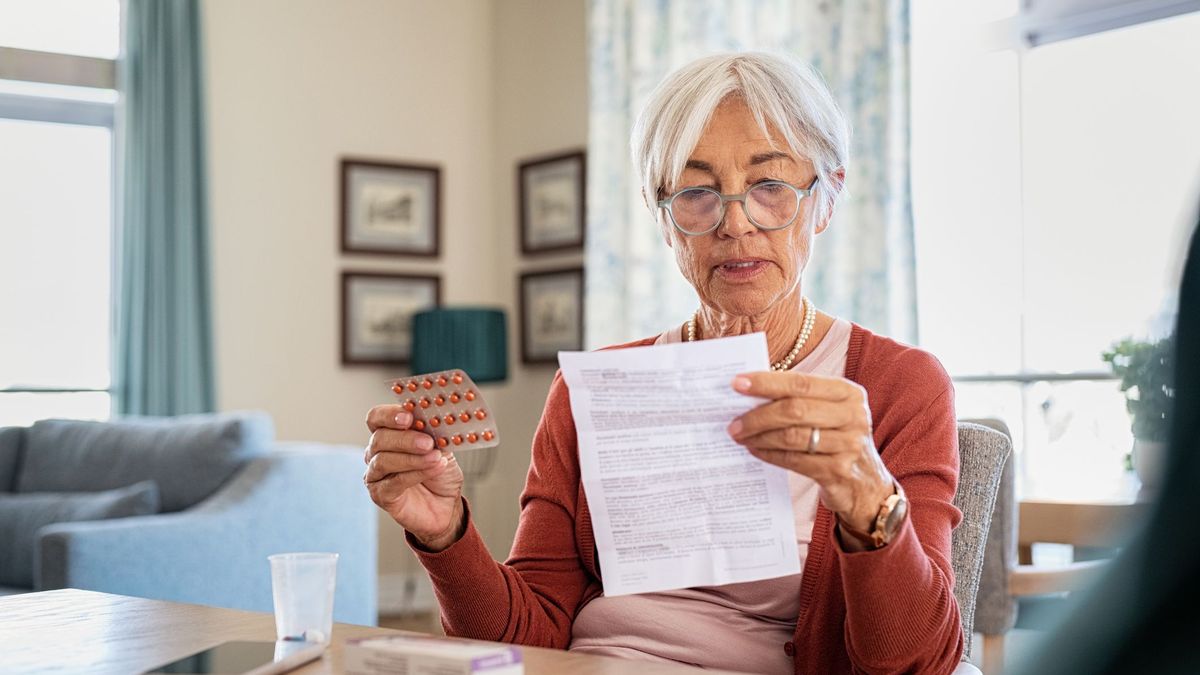Medication Management for Seniors
Medication management is essential for anyone taking prescriptions, but for older adults, it’s especially important, considering that nearly half of all seniors struggle to take their medications corr...

Medication Management for Seniors
Medication management is essential for anyone taking prescriptions, but for older adults, it’s especially important, considering that nearly half of all seniors struggle to take their medications correctly.
With 55% of Americans on at least one prescription and many taking multiple medications daily, it’s no surprise that medication errors lead to over a million emergency visits each year.
Keeping track of medications and dosing instructions can be challenging without the right strategies.
In the following guide, you’ll learn simple, practical tips for staying organized, preventing issues, minimizing side effects, and how your primary care doctor can help with managing your medicine—whether for yourself or a loved one.
Effective Medication Management
Effective medication management helps you stay on top of your health by ensuring you take each dose correctly and on time. From organizing your medications to communicating with your doctor, managing your meds well can improve outcomes, prevent errors, and make daily life easier.
Common Issues To Avoid
Even with careful planning, common mistakes in medication management can undermine safety and effectiveness. By being aware of these pitfalls, you can take proactive steps to avoid them and ensure your treatment stays on track.
• Skipping Doses: Missed doses can reduce effectiveness, especially for conditions requiring steady medication levels. Set reminders to avoid skipping.
• Doubling Up After a Missed Dose: Taking extra medication to "catch up" can be dangerous. Instead, follow the guidance from your doctor or pharmacist if you miss a dose.
• Misunderstanding Instructions: Misreading labels or instructions can lead to incorrect dosing. Ask your doctor or pharmacist for clarification on anything unclear.
• Discontinuing Meds When You Feel Better: When a medication is working as intended, you will feel better, but you should continue to take it as long as your doctor has instructed.
• Mixing Medications Unintentionally: Combining medications without consulting your healthcare provider can cause harmful interactions. Always check with your doctor or pharmacist before adding new drugs or supplements.
• Not Taking Medications Due To Difficulty Opening Bottles: This is a common issue, but your pharmacist can provide easy-open bottles if needed.
• Ignoring Side Effects: Some side effects are manageable, but others may indicate a serious issue. Report any unusual symptoms to your doctor promptly.
• Storing Medications Improperly: Heat, humidity, and light can degrade medications. Keep them in a safe, cool, dry place away from children and pets.
• Failing To Renew Prescriptions in Time: Running out of medication can disrupt your treatment. Set reminders to renew and refill prescriptions before you run out.
Prescriptions Medications and Over-the-Counter Drugs
Many people assume OTC drugs are completely safe, but when mixed with prescriptions, they can sometimes interfere with effectiveness or cause harmful interactions with prescribed drugs.
Keep your doctor informed about all your medications and supplements, including vitamins and herbal products, so they can advise you on safe combinations and dosages.
The Importance of the Brown Bag Method
The "Brown Bag Method" is a valuable practice where you bring all your medications—prescriptions, over-the-counter drugs, and supplements—to each doctor visit.
This method allows your doctor to review every medication, check for potential interactions, and ensure each medication is necessary for your health. It’s a simple way to keep your medication list accurate, prevent duplications, and reduce the risk of harmful side effects.
For seniors managing multiple prescriptions, the Brown Bag Method is an excellent way to stay organized and informed.
Medication Management Safety Guidelines
Staying safe while taking medications requires attention to detail and proactive habits. Following these guidelines can help prevent missed doses, avoid dangerous interactions, and keep your health on track.
In short, AEP is open to all beneficiaries for a broader range of adjustments, while OEP is specific to Medicare Advantage enrollees and allows only limited changes.
How Herself Health Can Help
At Herself Health, our sole focus is helping women 60 and older in Southeast Minnesota achieve greater independence and better health.
We can help you create a medication management plan that is easy to follow, and we’ll make any necessary adjustments along the way to keep you on the right track.
Discover how our innovative approach can help you take charge of your health. We currently have five convenient locations to serve you:
Rosedale Women’s Health Clinic: Our Rosedale clinic is located in the Rosedale Marketplace near the Rosedale Shopping center on the intersection of County Road B2 and Fairview Ave N.
Lyndale Women’s Health Clinic: Our Lyndale clinic is on the corner of West 55th St and Lyndale Avenue S beside a Walgreens.
Crystal Women’s Health Clinic: Our Crystal location is found beside Tower Auto Mart near the intersection of Douglas Drive N and W Broadway.
Highland Park Women’s Clinic: Highland Park is on the corner of Ford Parkway and S Kenneth St within the Highland Center neighboring Hillcrest Park.
Eagan Women’s Health Clinic: Eagan is found tucked on the corner of Rahncliff Rd and Cliff Rd neighboring a Nothing Bundt Cakes store.
Medication Management Ensures Your Safety
Medication management isn’t just about remembering pills—it’s essential for protecting your health and quality of life. By staying organized, working closely with healthcare providers, and following safety steps, you can help ensure your medications work effectively and safely.
For seniors especially, each small step toward better management of medications can reduce risks. Your medication plan is not set in stone; revisiting it regularly with your doctor helps you adapt to changing needs.
Take charge, stay informed, and make medication management a core part of your health journey.
Explore Herself Health today to learn how our whole-person approach can empower women 60+ to live life to the fullest.
Topics
Herself Health
Clinical Team